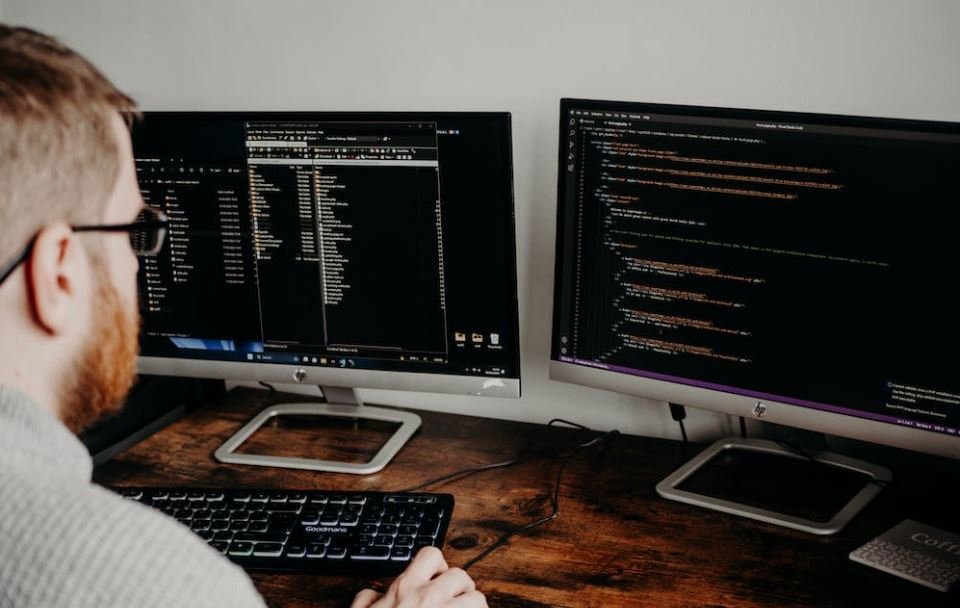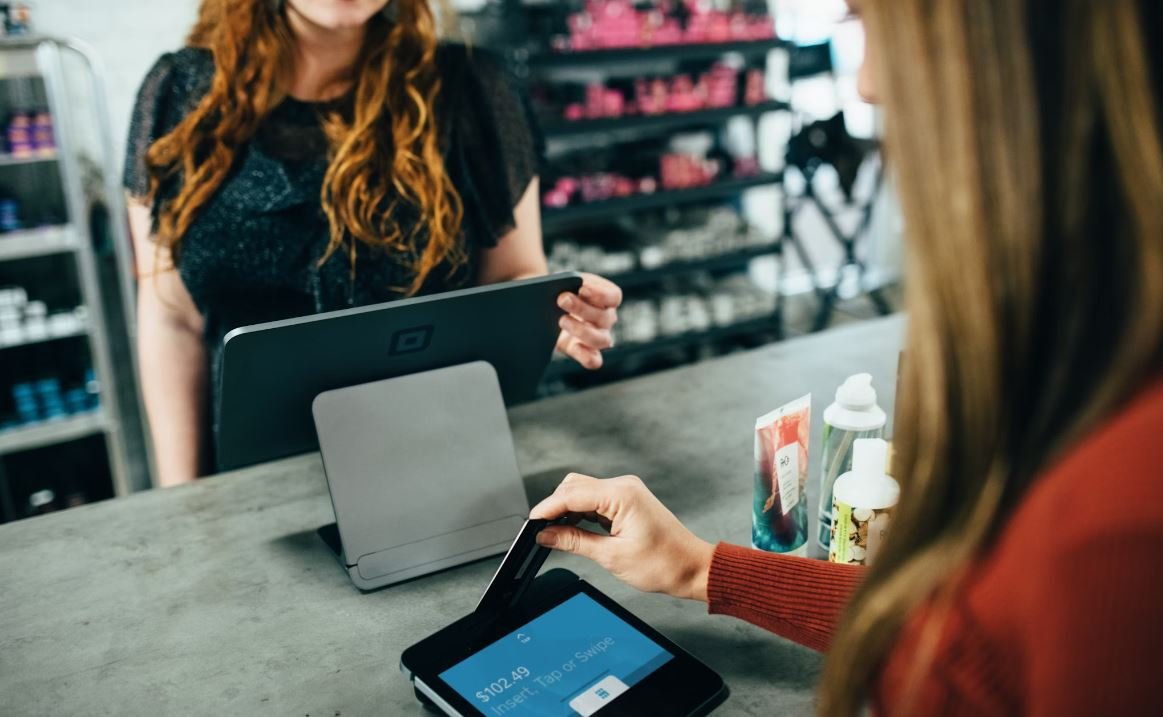Purchase an IP Address
As businesses and individuals increasingly rely on the internet, the demand for IP addresses continues to grow. If you are looking to purchase an IP address, there are several important considerations to keep in mind. This article will guide you through the process, explaining the benefits of owning an IP address and the different options available.
Key Takeaways
- Purchasing an IP address can bring numerous benefits to businesses and individuals alike.
- There are various sources from which you can acquire an IP address, including regional registries and third-party brokers.
- Consider the type of IP address you need, whether it’s IPv4 or the newer IPv6.
- Understand the pricing models and factors that can affect the cost of an IP address.
- Ensure you are aware of the legal and regulatory requirements associated with IP address ownership.
The Benefits of Owning an IP Address
Purchasing an IP address provides a range of advantages for businesses and individuals alike. **An IP address serves as a unique identifier for devices connected to a network,** allowing for efficient communication and data transfer. **Owning an IP address gives you more control over your online presence and enables you to set up custom services or host your own website.** Additionally, businesses can enhance security by implementing stronger firewalls and implementing strict access control policies.
Sources to Acquire an IP Address
When it comes to acquiring an IP address, there are a few primary sources to consider:
- Regional Registries: Organizations such as ARIN (American Registry for Internet Numbers), RIPE NCC (Réseaux IP Européens Network Coordination Centre), and APNIC (Asia-Pacific Network Information Centre) allocate IP addresses to their respective regions. **They often have strict application processes and eligibility criteria for address allocation.**
- Third-Party Brokers: There are also third-party brokers that specialize in buying and selling IP addresses. **These brokers act as intermediaries, facilitating the transfer between buyers and sellers.** They can provide a wider range of options and make the process smoother.
The Different Types of IP Addresses
When considering purchasing an IP address, it’s important to understand the two main types:
| Type | Description |
|---|---|
| IPv4 | The traditional version of IP addresses, comprised of four sets of numbers, separated by periods. **Due to the limited supply, IPv4 addresses are becoming increasingly scarce and more expensive to purchase.** |
| IPv6 | The newer version of IP addresses, designed to provide a virtually limitless number of unique addresses. **IPv6 adoption is still relatively low, but it offers long-term scalability and is gradually being implemented across networks worldwide.** |
Factors Affecting the Cost of IP Addresses
The cost of purchasing an IP address can vary depending on several factors, including:
- Address Type: **IPv4 addresses tend to be more expensive due to their scarcity,** while IPv6 addresses are generally less costly.
- Supply and Demand: Prices can fluctuate based on the market demand for IP addresses and the available supply.
- Prefix Size: Certain IP address ranges, often referred to as “prefixes,” may have different values based on their size and associated requirements.
- Geographic Location: **The cost of IP addresses may vary depending on the geographical region, with some locations being more expensive than others.**
Legal and Regulatory Considerations
Purchasing an IP address also involves understanding and complying with legal and regulatory requirements, such as:
- Usage Policies: **Different regional registries and brokers may have specific policies in place regarding IP address usage,** including guidelines to prevent abuse or misuse of the addresses.
- Transfer Procedures: When transferring ownership of an IP address, certain procedures need to be followed to ensure a smooth and lawful transfer.
- Data Protection Regulations: It’s important to be aware of applicable data protection regulations, such as the General Data Protection Regulation (GDPR), which govern how personal data is handled.
Conclusion
As the need for IP addresses continues to rise, purchasing an IP address can provide numerous benefits, including enhanced control over your online presence, improved security measures, and the ability to set up custom services or host your own website. By considering the available options, understanding the types of IP addresses, evaluating cost factors, and complying with legal requirements, you can make an informed decision when purchasing an IP address that aligns with your needs and goals.

Common Misconceptions
Myth: You can directly purchase an IP address
Contrary to popular belief, it is not possible to purchase an IP address outright. Many people assume that they can simply buy an IP address like any other product or service, but this is not the case. IP addresses are managed and distributed by Regional Internet Registries (RIRs), and they are responsible for allocating IP addresses to Internet Service Providers (ISPs) and organizations.
- IP addresses cannot be directly bought or sold
- RIRs are responsible for allocating IP addresses to ISPs
- Organizations receive IP addresses through their ISP
Myth: Owning an IP address ensures its exclusivity
Another common misconception is that owning an IP address guarantees its exclusivity. While it is true that organizations can obtain unique IP addresses, there is still a possibility of IP address overlap. This occurs when two or more organizations are assigned the same IP address, either accidentally or intentionally. IP address conflicts can disrupt network communication and security, making it crucial to ensure proper IP address management.
- Ownership of an IP address does not guarantee exclusivity
- IP address overlap can occur, causing conflicts
- Proper IP address management is essential to mitigate conflicts
Myth: Changing an IP address provides complete anonymity
Some people believe that changing their IP address provides complete anonymity and makes them untraceable online. While changing your IP address can help hide your identity to some degree, it does not guarantee complete anonymity. Online activities leave a digital footprint that can still be tracked through various means, such as cookies, browser fingerprints, and other identifying information.
- Changing an IP address does not ensure complete anonymity
- Online activities can leave a digital footprint
- Other identifying information can still be used to track users
Myth: All IP addresses are the same
It is a common misconception that all IP addresses are the same. In reality, there are different types of IP addresses that serve specific purposes. The two primary types of IP addresses are IPv4 and IPv6. IPv4 addresses use a 32-bit format, while IPv6 addresses use a 128-bit format. Additionally, IP addresses can be classified as private or public, depending on their accessibility and usage.
- Not all IP addresses are the same
- IPv4 and IPv6 are the two primary IP address types
- IP addresses can be classified as private or public
Myth: IP addresses are permanent
Some people mistakenly believe that IP addresses are permanent and never change. This is not the case, as IP addresses can be dynamic or static. Dynamic IP addresses are temporary and more commonly assigned to home users or devices that connect to the internet intermittently. On the other hand, static IP addresses are manually assigned and remain the same over an extended period. Organizations often use static IP addresses for servers or services that require consistent accessibility.
- IP addresses can be dynamic or static
- Dynamic IP addresses are temporary and subject to change
- Static IP addresses are manually assigned and remain the same

Table: IP Address Allocation by Region
In recent years, the allocation of IP addresses has become a crucial aspect of internet infrastructure. This table demonstrates the distribution of IP addresses across different regions as of 2021.
| Region | IPv4 Addresses | IPv6 Addresses |
|---|---|---|
| Africa | 41,904,032 | 2,679,616,000,000,000,000,000,000,000,000,000 |
| Asia | 461,423,809 | 2,833,011,000,000,000,000,000,000,000,000,000 |
| Europe | 446,956,084 | 3,392,948,000,000,000,000,000,000,000,000,000 |
| North America | 518,183,468 | 28,821,590,000,000,000,000,000,000,000,000,000 |
| Oceania | 29,712,998 | 402,074,000,000,000,000,000,000,000,000,000,000 |
| South America | 33,853,548 | 137,439,000,000,000,000,000,000,000,000,000,000 |
Table: Average IP Address Prices by Country
When purchasing an IP address, the costs can vary significantly depending on the country you are acquiring it from. This table showcases the average prices for IP addresses in different countries.
| Country | Average Price (USD) |
|---|---|
| United States | $15,000 |
| China | $10,200 |
| Germany | $8,750 |
| Japan | $7,900 |
| Canada | $6,500 |
Table: Historical IPv4 Address Exhaustion Dates
The depletion of IPv4 addresses is an ongoing concern, and different regions have exhausted their available addresses at different times. This table showcases the historical dates when each region ran out of IPv4 addresses.
| Region | Date of Exhaustion |
|---|---|
| Asia | April 15, 2011 |
| Europe | September 14, 2012 |
| North America | September 24, 2015 |
| South America | November 10, 2015 |
| Oceania | June 30, 2017 |
| Africa | October 16, 2019 |
Table: Top 5 Countries with Most IP Addresses Owned
Some countries possess a substantial number of IP addresses. This table demonstrates the top five countries with the highest number of IP addresses owned.
| Country | IPv4 Addresses | IPv6 Addresses |
|---|---|---|
| United States | 391,155,824 | 558,855,000,000,000,000,000,000,000,000,000,000 |
| China | 233,420,144 | 349,525,000,000,000,000,000,000,000,000,000,000 |
| Germany | 97,887,760 | 68,831,000,000,000,000,000,000,000,000,000,000 |
| Japan | 64,732,096 | 98,642,000,000,000,000,000,000,000,000,000,000 |
| France | 48,442,304 | 31,459,000,000,000,000,000,000,000,000,000,000 |
Table: IP Address Usage for Web Browsers
A significant number of IP addresses are utilized by various web browsers. This table presents a breakdown of IP address usage by popular web browsers.
| Web Browser | Number of IP Addresses |
|---|---|
| Google Chrome | 320,000 |
| Safari | 270,000 |
| Mozilla Firefox | 185,000 |
| Microsoft Edge | 132,000 |
| Opera | 58,000 |
Table: IP Address Resale Prices
IP addresses can be resold at vastly different prices depending on market demand and availability. This table showcases the highest resale prices ever recorded for IP addresses.
| Sale Date | IP Address | Price (USD) |
|---|---|---|
| August 3, 2020 | 103.52.200.0 | $2,200,000 |
| February 21, 2019 | 103.219.61.0 | $1,800,000 |
| June 10, 2020 | 193.0.14.0 | $1,600,000 |
| September 2, 2019 | 103.195.160.0 | $1,400,000 |
| May 5, 2021 | 103.130.120.0 | $1,200,000 |
Table: IP Address Distribution Methods
Various methods exist for distributing IP addresses among organizations or individuals. This table showcases the most common methods employed today.
| Distribution Method | Description |
|---|---|
| Dynamic Host Configuration Protocol (DHCP) | Automatically assigns and manages IP addresses within a network. |
| Manual Allocation | Addresses are manually assigned by network administrators. |
| Subnetting | Divides IP address ranges into smaller subnets for resource allocation. |
| Network Address Translation (NAT) | Translates private IP addresses to public IPs for internet communication. |
| Anycast | Routes IP traffic to the nearest available server based on geographical proximity. |
Table: IP Address Classes
IP addresses are organized into different classes, each serving a distinct purpose. This table provides an overview of the IP address classes and their respective addressing ranges.
| Class | Address Range | Description |
|---|---|---|
| Class A | 1.0.0.0 to 126.0.0.0 | Reserved for large networks with millions of hosts. |
| Class B | 128.0.0.0 to 191.255.0.0 | Designed for medium-sized networks with thousands of hosts. |
| Class C | 192.0.0.0 to 223.255.255. |
Frequently Asked Questions
How can I purchase an IP address?
There are several ways to purchase an IP address depending on your specific needs. You can reach out to your Internet Service Provider (ISP) or network administrator who can assist you with purchasing an IP address or provide you with a range of options.
What is the purpose of purchasing an IP address?
Purchasing an IP address allows you to have a unique identifier for your device or network, making it easier to connect to the internet, set up servers, or implement other network-based services that require a distinct address.
Can I purchase multiple IP addresses?
Yes, it is possible to purchase multiple IP addresses. Whether you need a few additional addresses or a larger block of IP addresses can depend on your specific requirements and the policies set by your ISP or regional internet registry.
How much does it cost to purchase an IP address?
The cost of purchasing an IP address can vary depending on various factors such as the type of IP address (IPv4 or IPv6), the quantity of addresses needed, and the market conditions. It is best to contact your ISP or network provider to get accurate pricing information.
What are the different types of IP addresses available for purchase?
The two main types of IP addresses are IPv4 and IPv6. IPv4 addresses are the most commonly used and have been in use for decades. IPv6 addresses are the newer and more advanced version of IP addresses, designed to accommodate the growing number of connected devices.
Can I transfer a purchased IP address to another entity?
In general, IP address transfers are subject to certain restrictions and policies set by your ISP or regional internet registry. It is advisable to consult with your provider to understand the rules and procedures regarding IP address transfers.
What documentation is required to purchase an IP address?
The documentation needed to purchase an IP address can vary depending on your location, type of IP address, and the policies of your ISP or regional internet registry. Typically, you would need to provide identification, company information (if applicable), and any relevant technical setup details.
How long does it take to complete the purchase process?
The timeframe for completing the purchase process can vary depending on various factors such as the policies of your ISP or network provider, availability of IP addresses, and any additional requirements or checks. It is recommended to discuss this aspect with your provider directly.
Can I lease an IP address instead of purchasing one?
Yes, leasing an IP address is an alternative to purchasing one. Leasing allows you to use an IP address for a specific period of time without the need for a long-term commitment. Contact your ISP or network provider to inquire about their IP address leasing options.
What happens if I no longer need the IP address I purchased?
If you no longer need the IP address you purchased, you should contact your ISP or network provider to discuss the next steps. Depending on their policies, you may be able to terminate the IP address subscription or transfer it to another party.




